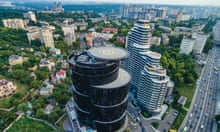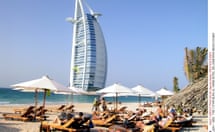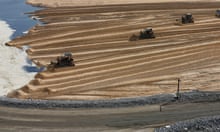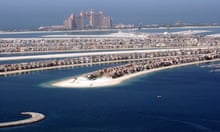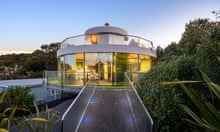It was billed as a glass-walled city of the future, an ambitious centrepiece of the economic plan backed by Crown Prince Mohammed bin Salman to transition Saudi Arabia away from oil dependency.
Now, however, plans for the mirror-clad desert metropolis called the Line have been scaled down and the project, which was envisaged to stretch 105 miles (170km) is expected to reach just a mile and a half by 2030.
Dreamed up as a linear city that would eventually be home to about 9 million people on a footprint of just 13 sq miles, the Line is part of a wider Neom project. Now at least one contractor has begun dismissing workers.
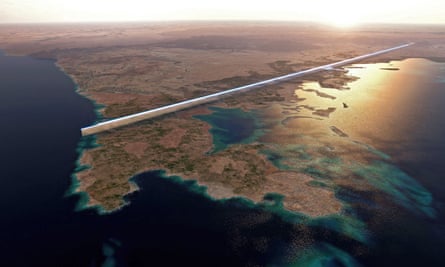
The scaling down of Prince Mohammed’s most grandiose project was reported by Bloomberg, which said it had seen documents relating to the project.
The project, which had been slated to cost $1.5tn (£1.2tn), was pitched as a reinvention of urban design. However, it has long attracted scepticism and criticism, not least after the reported execution of several members of the Howeitat tribe who had protested over plans to construct on their ancestral lands.
Then there were reports of Prince Mohammed’s changing vision for the project, budget overspends and an ever-changing roster of key staff, with some who have worked on the project describing it as “untethered from reality”.
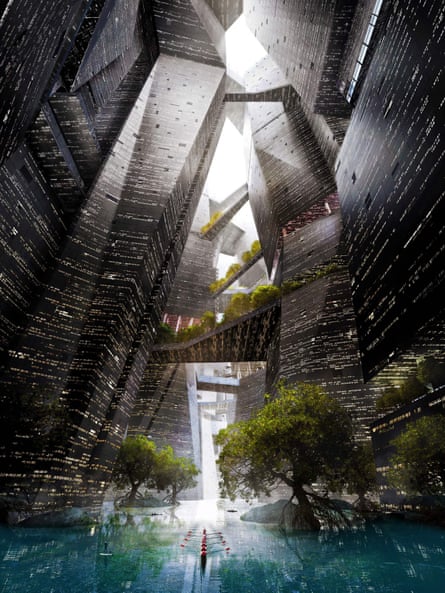
According to Bloomberg, the scaling back of the Line comes as the overall Neom budget for 2024 has yet to be approved by Saudi Arabia’s sovereign wealth fund amid declining cash reserves.
Promotional presentations had suggested something out of a science fiction novel running inland into Tabuk province from the mouth of the Gulf of Aqaba where it enters the Red Sea.
A few hundred metres wide, the linear city had been sold as the future of accessible urban planning, with amenities for residents within close walking distance to accommodation and districts connected by one of the world’s fastest trains.
Promotional material described the Line in almost mystical terms: a “cognitive city” and a “civilisation revolution” where amenities would be provided by artificial intelligence.
Prince Mohammed, who has long been accused of involvement in the killing of the Washington Post journalist Jamal Khashoggi in Istanbul in 2018, had described the city project as “tackling the challenges facing humanity in urban life today” to “shine a light on alternative ways to live”.

Not everyone, however, has been convinced by the prince’s glossy prospectus. Writing in the New York Times in 2021 at the time Neom released a video describing the prospects of living between the city’s silvered walls, the US journalist and author Robert Worth said: “To watch the crown prince’s promotional video is to be immersed in a distinctively Saudi form of arrogance, blending religious triumphalism and royal grandiosity.”
And hubris, too, apparently.



